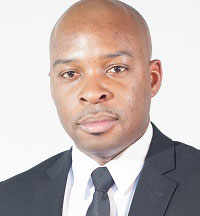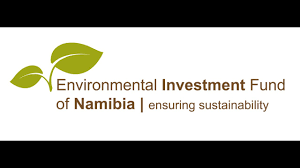
EIF mandate risky but vital

The CEO of the Environmental Investment Fund (EIF) said that although operating in a niche area with little private sector participation is seen as risky, government and recent donor backing guarantee success for the newly-formed environment steward.
However, there is private sector appetite to engage in the green economy provided that the right enabling environment is created. At the moment, CEO Benedict Libanda said, if this portfolio was given to a private entity, it would die quite fast due to these risks.
Speaking on whether the direct owners and non-executive board members have the capability, capacity, clarity of role and commitment to integrity needed to deliver and on the continuing purpose for state ownership, Libanda said that as the country develops and pursues its goal of moving to a sustainable future, the mandate can not be given solely to the private sector as their core purpose is to maximise profits.
The Board of the EIF is made up mostly of government officials, even though there has been a call to include individuals from the private sector. “This is because the entity is government-owned and they would like to maintain oversight of the organisation and not to dilute its mandates,” Libanda said.
He added that the EIF functions very well as a government institution with government backing in the form of a guarantee to carry out the task and purpose of providing sustainable source funding to support environmentally sound development.
He said that Environmental Investment is in a fairly new sector that is difficult to understand as it evolves and that having people on the Board who have served on other Boards, support the start-up phase of the EIF. “We started with conservation, and now we are integrating broader environmental issues such as climate change and this is complex. So the strategy is to keep key partners, stakeholders and executives including board members informed of the new trends and give them exposure through training, capacity building and visits to similar international institutions.”
To wean itself from government funding, the EIF through its Green Climate Fund, plans to become self-reliant and not depend on a government allocation. “In the future we will be introducing environmental levies through a fiscal reform and also spread our income generating avenues. Increasing the loan amount on the Green Climate Fund and decreasing grants overtime. This approach is more sustainable [and we will be] seeking finance as equity investments and conversely seeking finance from strategic partnerships locally or internationally in the form of a credit format or any amicable funding formula” he elaborated.
International partners have the potential to contribute through access to finance, capacity building, technology and other benefits. Libanda said that the EIF is a transparent state-owned entity with accreditation to the Green Climate Fund, having earned an A+ on the financial fiduciary standard from the African Association for Development Finance Institutions.
The global deal reached at the Paris Conference of Parties on climate change has redefined the important role that the EIF plays in this sector. Currently its main goal is sustainability of the institution – supporting itself to implement its mandate independent from government. “We are driven by that principle that profit maximisation is not what aspires us to achieve our institutional goals.”
The EIF’s local actions are contributing to global goals to reduce carbon emissions, specifically that of maintaining the rise in the global average temperature below 2 degrees Celsius. The EIF’s investments will address issues of climate change, sustainable resource management, maintenance of ecosystems and biodiversity conservation in a manner that complements programmes and actions of both the public and private sectors.
On the trends that are impacting the EIF’s strategy and future prospects, Libanda said that the national focus does not have a direct impact but as power moves from the west they are looking at strengthening relationships with the east because of their growing influence. “We are pursuing a national climate change policy. Moreover, Namibia has submitted its Intended National Determinant Contribution to the UNFCCC and our institution has a big role to drive forward the implementation of such a plan.”










































